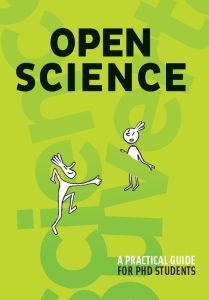Guest post by Thomas Stacey, Open Access Team, UCL Library (LCCOS)
At UCL, students studying for doctoral and research master’s degrees are required to submit an electronic copy of their thesis to the Library for inclusion in UCL Discovery, our open-access repository of UCL research outputs, in order for their degree to be awarded. The Open Access Team encourages theses to be made openly available, either immediately after award or following the completion of an embargo period. We do, however, recognise that there are a number of reasons why access may need to be restricted, such as future publication, confidentiality, the inclusion of sensitive and/or personal information, and – in the discipline of Art History in particular – the presence of third-party copyrighted images.
I have been thinking about art history theses and whether they could be made open access more easily – and crucially with all the images included where needed.
The University of Cambridge’s ‘Unlocking Research’ blog post written in 2019 by Dr Lorraine de la Verpillière provides a comprehensive background on the issues facing academics within the arts: many are forced to pay to access third-party copyrighted works for private study, and then to pay again later on publish the final research output. Within this blog post, one academic commented “The more successful I become the poorer I get” as the furthering of their career through obtaining copyright for images has cost them over $20,000. Even out-of-copyright artworks are affected, as galleries and museums that own the originals can create their own copyrighted reproductions and restrict others’ ability to do the same. Bridgeman Images, for example, now owns the rights to all images of artworks in Italian national museums – which can pose a huge financial challenge for many art historians.
A further obstacle for Art History students is that the principle of fair dealing within the Copyright, Designs and Patents Act 1988, which can be used to justify the inclusion of extracts of texts and figures (as part of a wider, previously-published work) in theses, cannot be applied to the reproduction of full artworks, which constitute entire copyrighted works in themselves.
An art history thesis without images understandably compromises the integrity of the work. Unless PhD students use images with Creative Commons licences or which are in the public domain due to being out-of-copyright entirely, they will either have to obtain permissions or redact the images within their thesis accordingly. When processing thesis submissions for UCL PhD students, the Open Access Team will often be required to redact images as part of routine checks prior to any thesis file being made publicly available in UCL Discovery.
It seems there is not a straightforward solution to enable art history theses to be made open access with all images included in the work. Dr De la Verpillière suggests that there could be more support from universities for art history students and academics regarding third-party copyright. Art institutions really need to do more in this respect. Some art institutions have started to make their image collections open access (a selection is given below) so hopefully more will do likewise soon. Even if art institutions provided discounted permissions fees for PhD students needing to use images for example – that is a compromise of sorts to help new academics.
To avoid delays in making theses available in UCL Discovery post-award, or redactions being made to images of artwork that are critical to the overall integrity of the thesis, the Open Access Team also recommends that relevant licence and/or permissions information is included within the thesis file, as part of the Library’s guide to copyright for research students.
Here are some art institutions with open-access image collections:

 Close
Close


